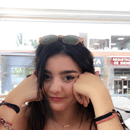Instagram is not the first attempt young generations have made to express identity. To curate an image online is merely one branch of a larger, ongoing effort to try and embrace what Michael Puett and Christine Gross-Loh call a “unified self.” This notion of a unified self stands in contrast to the reality that humans are “messy, multi-dimensional creatures, a jumble of conflicting emotions and capabilities living in a messy, ever-changing world.” Yes, there are set adjectives that can be attributed to one’s personality: She’s funny! He works a lot!
None of these comments, however, can encompass the fact that “we are who we are by constantly reacting to one another.” No one’s identity is static, not even by the month. And, on platforms like Instagram, we try to challenge this dynamism — we try and present self-contained images online, when in the real world this cannot be done. Identity is never static, nor possible to characterize.
While I refrain from saying the app itself is really so profound, I do think it’s an offshoot of this constant effort. Sometimes when you look through your Instagram – you realize you are older. It’s shocking. But really, you’ve been different for a long time, and Instagram was actually the last to show it.
Nevertheless, I’m always trying to make myself feel better with pictures. I find comfort in looking at myself smiling. I take myself out of the present moment and put myself in another. When I see myself, with straightened hair, and pink eyeshadow, I feel that confidence preserved. And so, if I’m feeling down, I look to Instagram and photographs to try and convince myself I shouldn’t be. I also compulsively post online, to try and negate whatever’s bothering me. Like, “that moment’s no different from this one.”
I don’t think that’s healthy or realistic, though. In the long run, confidence and moods are meant to fluctuate. And so, I deleted Instagram to see if it would help me stop quantifying moments of ‘happy’ and measuring them against moments of ‘sad.’ I wanted to spend less time on my phone, and more time focused on whatever was in front of me. My goal was to stop labeling and categorizing myself and my time.
And so, on my way to school this semester, when my mom was driving me and we were singing along to music, my feet were up in front of the window … and I deleted the app without thinking twice. I looked at the screen and realized – I hate this app. I hate that it’s skewing the way I look at pictures and memories. I hate that when I spend time online, I create the unrealistic ideal that I should be smiling and made-up all the time – because apparently, I was yesterday, and the day before, and the day before.
Sharing photos online started to feel like giving them away. And so, deleting Instagram was an effort to just let moments and memories be what they were.
I found that after deleting the app, I didn’t miss it. I rarely feel FOMO from looking at other people’s posts in the first place, but it did feel refreshing – like everyone had more privacy. Coincidentally, I was less anxious as I walked around the street because I didn’t spend as much time on my phone. I know people often go on their phones to avoid eye contact and all that stuff, but actually, I think looking up and around makes a person feel calmer. And best of all, when I took pictures with my friends, they felt more genuine. They didn’t feel dedicated to creating a static image of myself as easygoing, dolled up, and extroverted.
By the time I reactivated Instagram, I realized I was inclined to use it less. It feels less appealing now. I still feel more in the moment, less addicted to my phone, and less focused on curating an idealized image.
Once again, I don’t think that Instagram itself is so deep. But, I do think that there are ongoing ways that people try and understand the self as static, and social media is one of them. I want to change this mentality within myself — because it’s exhausting — and being less attached to online accounts feels like the first step.
Want to keep up with HCBU? Make sure to like us on Facebook, follow us on Instagram, check out our Pinterest board, and read our latest Tweets!



